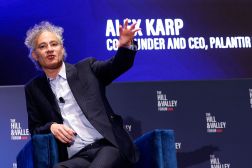Since the emergence of agency dependence on IT systems, the role of the chief information officer has evolved into a nimble one, balancing technical duties and business strategy. But a new white paper from CIO Magazine and IDG Research Services argues that current CIOs are struggling to dedicate time to both, finding it hard to stray away from maintaining IT operations and security, and that it needs to change.
The CIO position may only be a few decades old, but in that short time it has transformed rapidly with the evolution of technology. Quickly, the role became one of leveraging computer systems to fulfill an agency’s business and operational needs. But as the business side became ever more dependent on IT, CIOs have found themselves tied to keeping those systems up-and-running.
Or as the report put it: “Keeping the lights on.”
As the white paper explains, “The result: Too many CIOs still find their time consumed by tactical systems maintenance and upgrade tasks, leaving too little time for them to engage in more-strategic business activities.”
The reality is, most CIOs spend their time trying to keep things running smoothly when they’d rather be innovating operations and differentiating their agencies. Red Hat partnered with IDG Research Services to ask 100 top IT executives in organizations with more than 1,000 employees their top-five current priorities. Overall, 48 percent responded with “improving IT operations/systems performance,” while 47 percent said “implementing new systems and architectures.”
But that’s not what they want to be doing. Though some respondents did suggest they currently have time to align IT with business, when asked how they wish to spend their time in the next three to five years, all of the top responses had to do with blending IT and business.
Part of it could have to do with the organizational culture. While most of the executives surveyed claimed they were satisfied with their positions, they expressed a lack of recognition within their organization as a business decision maker.
But when it comes to business growth and differentiation, they believe it will be their duties as CIO through implementing new technologies into the enterprise that will lead the organization to success. Particularly, they have high hopes to do so with mobile technology and business intelligence and analytics.
Still, CIOs believe there are ways to accomplish business innovation in the current construct, and they feel the burden falls largely on themselves. Specifically, many said they respond to this challenge by “communicating regularly with line-of-business leaders,” while many others are “becoming more proactive in identifying technology that helps fuel innovation.”
The question now is what needs to be fixed: the position or the culture? Some of those polled recommended changing the title from chief information officer to something like chief innovation officer, chief solutions officer and chief integration officer — something more consistent with their main duties.
But regardless of what semantic changes might occur, a deeper transformation must happen, according to the white paper.
“In the end, whether the title remains chief information officer or becomes a more business-centric moniker, the existing CIO job position must continue to break free from its IT-centric focus,” it explains. “In today’s world, IT is business and business is IT. Organizations that continue to organizationally and conceptually isolate the two will fall behind competitors that treat IT and business as merely different sides of the same coin.”






